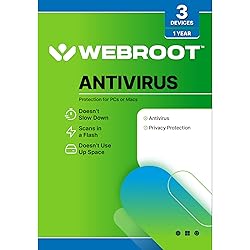Why Antivirus Scans Take So Long: Understanding the Process and How to Optimize It
Antivirus scans take so long because they are designed to perform thorough inspections of your system to ensure no malicious files or hidden threats go undetected. In today’s digital landscape, as cyber threats evolve in complexity and stealth, it’s more important than ever for both consumers and businesses to understand the intricacies of antivirus scanning—and why patience is sometimes a worthwhile investment in your cybersecurity.
How Antivirus Scanning Works
Before delving into why antivirus scans take significant time, it’s key to grasp how these scans function and the steps they involve.
File-by-File Analysis
Antivirus software systematically examines every file on your device or within selected locations. This comprehensive approach ensures that even obscure or dormant malware can’t slip through the cracks. Each file is compared against extensive malware signature databases, while also being analyzed for suspicious behaviors and characteristics.
Types of Antivirus Scans
Two main types of scans influence how long the process takes:
– Quick Scan: Focuses on critical system areas and commonly infected files—typically much faster.
– Full Scan: Examines all files and folders, external drives, and archives. This is essential for a deep-clean but is far more time-intensive.
Factors That Influence Antivirus Scan Duration
Several variables explain why antivirus scans take so long, and understanding them can help users manage their expectations and streamline the process.
Size and Number of Files
The total number and size of files play a central role in scan duration. Devices with vast music, video, or document libraries will inevitably take longer to scan than those with minimal data.
Hardware Performance
– Processor Speed: Modern multi-core CPUs can handle scans more efficiently.
– Storage Type: SSDs allow for much faster file access compared to traditional HDDs.
– RAM: Limited memory can bottleneck scanning, especially on older machines.
Depth and Type of Scan
A full scan, especially one that combs through compressed archives and system restore points, will significantly extend scanning times compared to a quick or selective scan.
Real-Time Protection and Other Programs
If your antivirus provides real-time protection, background processes might slow down on-demand scans. Running other programs during scanning can also throttle resources, lengthening scan times.
Heuristic and Behavioral Analysis
Beyond simple signature matching, modern antivirus tools use heuristic algorithms and behavioral analysis to detect unknown threats. These methods are computationally intensive but critical for detecting novel viruses and zero-day exploits.
Optimizing Your Antivirus Scans
Understanding why antivirus scans take so long is only half the battle—here’s how you can help speed things up without sacrificing security.
Keep Your System Clean
Regularly deleting unnecessary files, uninstalling unused programs, and emptying your recycling bin can reduce the scope of each scan. You’ll also lessen the load if you periodically move seldom-accessed files to external storage.
Schedule Scans Wisely
Set full scans for times when you’re not heavily using your device, such as overnight or during work breaks. Many antivirus solutions offer flexible scheduling tools to automate this.
Use Exclusions Thoughtfully
Most antivirus programs allow you to exclude trusted files or directories from scans. Use this feature for large, frequently accessed files that you know are safe, but avoid overusing it to prevent potential security gaps.
Keep Antivirus Software Updated
Updates often include scan engine improvements that speed up processing and reduce false positives. Outdated antivirus applications may take longer to scan and may not detect the latest threats.
The Tradeoff: Thoroughness vs. Speed
Why You Shouldn’t Cancel Full Scans
It can be tempting to halt a sluggish scan, but skipping or frequently interrupting antivirus scans increases your exposure to hidden risks. For enterprise environments and small businesses, this can be particularly dangerous.
Smart Scanning Options
Look for products that employ smart scanning, which learns to skip unchanged files or uses cloud-based analysis to offload computations—both can significantly reduce scan times.
FAQs: Why Antivirus Scans Take So Long
Q1: Why does my antivirus scan slow down my computer?
A1: Antivirus scans use system resources—especially CPU, disk, and memory—which can temporarily slow performance, particularly on older machines or during full system scans.
Q2: Can I use my computer while an antivirus scan is running?
A2: Yes, but running demanding applications during a scan can slow both the scan and your device’s performance. For best results, schedule scans during off-hours.
Q3: Do I need to run a full scan every time?
A3: No, quick scans are effective for routine safety. Full scans are recommended periodically or when you suspect an infection.
Q4: How can I make antivirus scans faster?
A4: Keep your files organized, remove unnecessary data, use exclusions for trusted locations, and keep your antivirus program updated.
Q5: Why does a scan sometimes take longer than before?
A5: This could be due to larger file counts, recent updates to your antivirus engine, or the introduction of new, more thorough scanning methods.
Q6: Are cloud-based antivirus tools faster?
A6: Yes, cloud-based scanning can be faster, as heavy computations are done on remote servers, reducing the load on your device.
In Summary
Understanding why antivirus scans take so long helps you see them as a critical, necessary component of robust cybersecurity. While scanning can feel inconvenient, it’s a proactive step—protecting you, your business, and your data from evolving digital threats.
Practical Takeaway:
Schedule full scans periodically, tidy up your files, and keep both your system and antivirus software up to date. A little patience during those long scans can bring peace of mind and prevent far greater headaches in the future.

